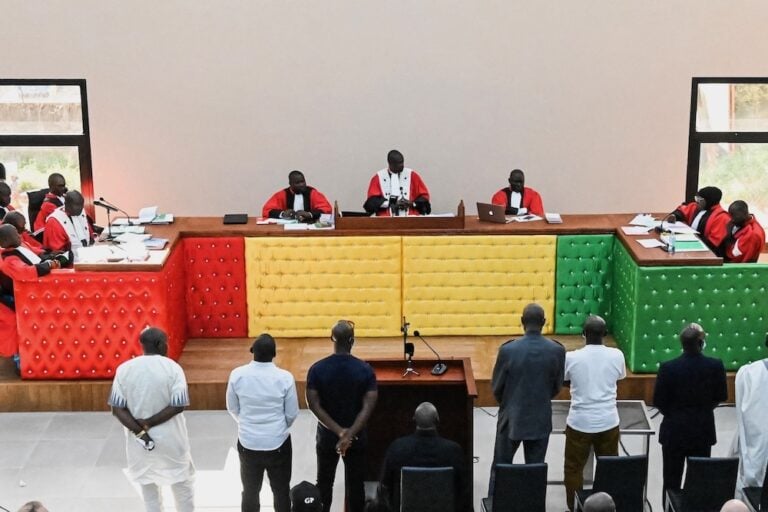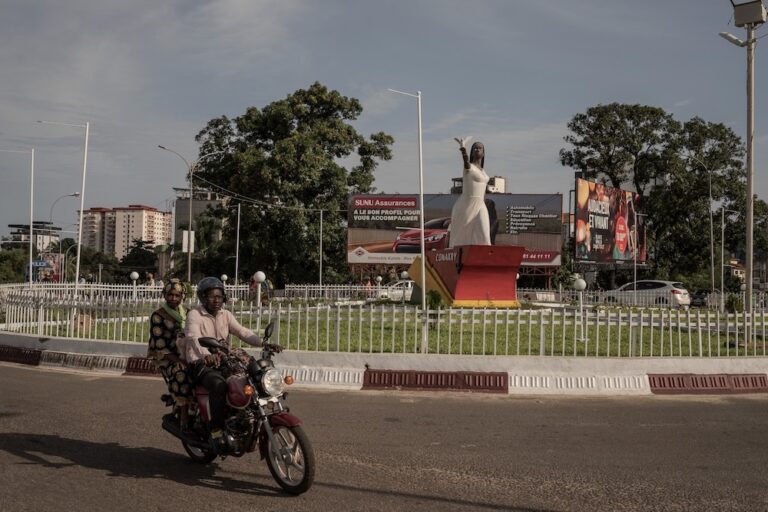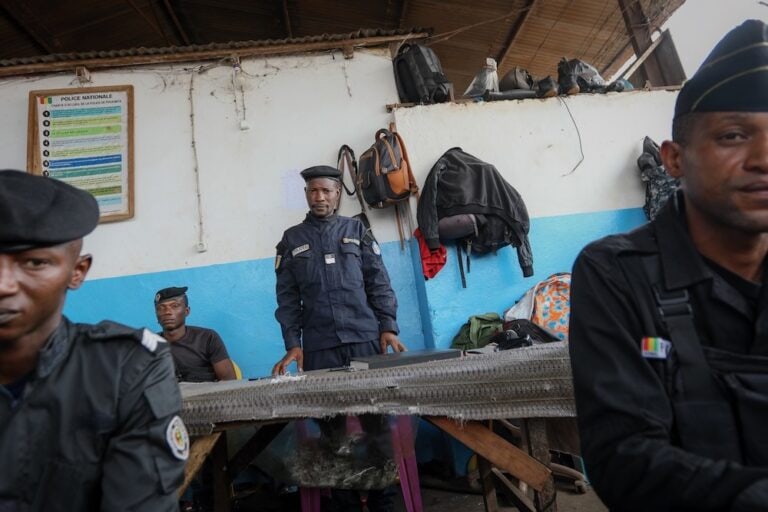"Inquisiteur.net" is the second news website to be blocked in less than two weeks by the military junta in Guinea.
This statement was originally published on rsf.org on 15 September 2023.
For the second time in less than two weeks, Reporters Without Borders (RSF) has restored access to a blocked news website in Guinea by creating a mirror site. The latest site had been blocked for 12 days as a result of censorship, although the government denies responsibility.
Inquisiteur.net, an independent news and investigative website, first became impossible to access within Guinea on 1 September. Access was briefly recovered on the morning of 5 September, but was blocked again 30 minutes after it posted three articles, one of them questioning the two-year-old military government’s respect for its pledges. Forty-eight hours later, access was only possible by means of a VPN.
The site’s readers have been able to access its content again without a VPN since 12 September thanks to the mirror site created by RSF. The same procedure was used on 30 August to restore access to the Guinée Matin news site, which had been blocked for no apparent reason for the previous two weeks.
“The blocking of news sites without explanation or prior communication is extremely worrying for the media in Guinea. This is the second time in less than two weeks that our organisation has unblocked a site by creating a mirror site. Even if the Guinean authorities deny any involvement in these acts of censorship, they have a duty to do everything possible to identify those responsible and to ensure that the right to information is respected in Guinea.”
Sadibou Marong, Director of RSF’s sub-Saharan Africa bureau
Ousmane Gaoual Diallo, who is the spokesman of the military junta – called the National Committee of Reconciliation and Development (CNRD) – and minister of posts, telecommunications and digital economy, denies any governmental role in the blocking of the two sites. “On the contrary,” he said when contacted by RSF, “if the authorities are asked, we will carry out investigations. I don’t see why we would block these sites.”
Regarded as an “enemy of the Guinea media” since a series of press freedom violations in May, Diallo was also asked about the blocking when interviewed by Espace TV on 12 September. He replied: “When the government decides to block a site, you cannot even access it with a VPN. If you can access it by circumvention methods, it’s because you haven’t been blocked.” He also claimed that he was now “reconciled with the media.”
Inquisiteur.net general manager Mamoudou Babila Keita, who is also an Espace FM radio show host, insisted that the CNRD was responsible for the blocking. “Although there has been no official notification about the reasons for this restriction, we were warned in advance of this closure in the form of threats,” he said. “We are accused of being a media that is critical of the government, especially in our investigative reporting.”
After Inquisiteur.net published an article in July headlined “The CNRD’s state lies about Guinea’s economic performance,” Moussa Moïse Sylla, who is the junta’s communication and information director and a former Inquisiteur.net associate, transmitted a message to Keita via colleagues asking him to take down the article because it had “irritated the transitional president.”
When Keita refused, Sylla requested a meeting in which, according to Keita, he said the government had “the means to shut down the site.” So, in Keita’s view, “this threat was carried out” when the site was blocked.
In the same way, no explanation was given in mid-August for the blocking of the Guinée Matin website, which became the first Guinean site to be unblocked by means of a mirror site created by RSF’s Operation Collateral Freedom two weeks later. Launched in 2015, this operation enables RSF to help news sites to circumvent censorship by creating mirror sites for them on international servers operated by tech giants.
As RSF reported at the time, the junta responded to a big wave of political protests in May by disconnecting social media, restricting access to news sites, jamming radio signals, confiscating equipment and intimidating journalists, in what was the biggest crackdown on press freedom since the military coup in September 2021.



